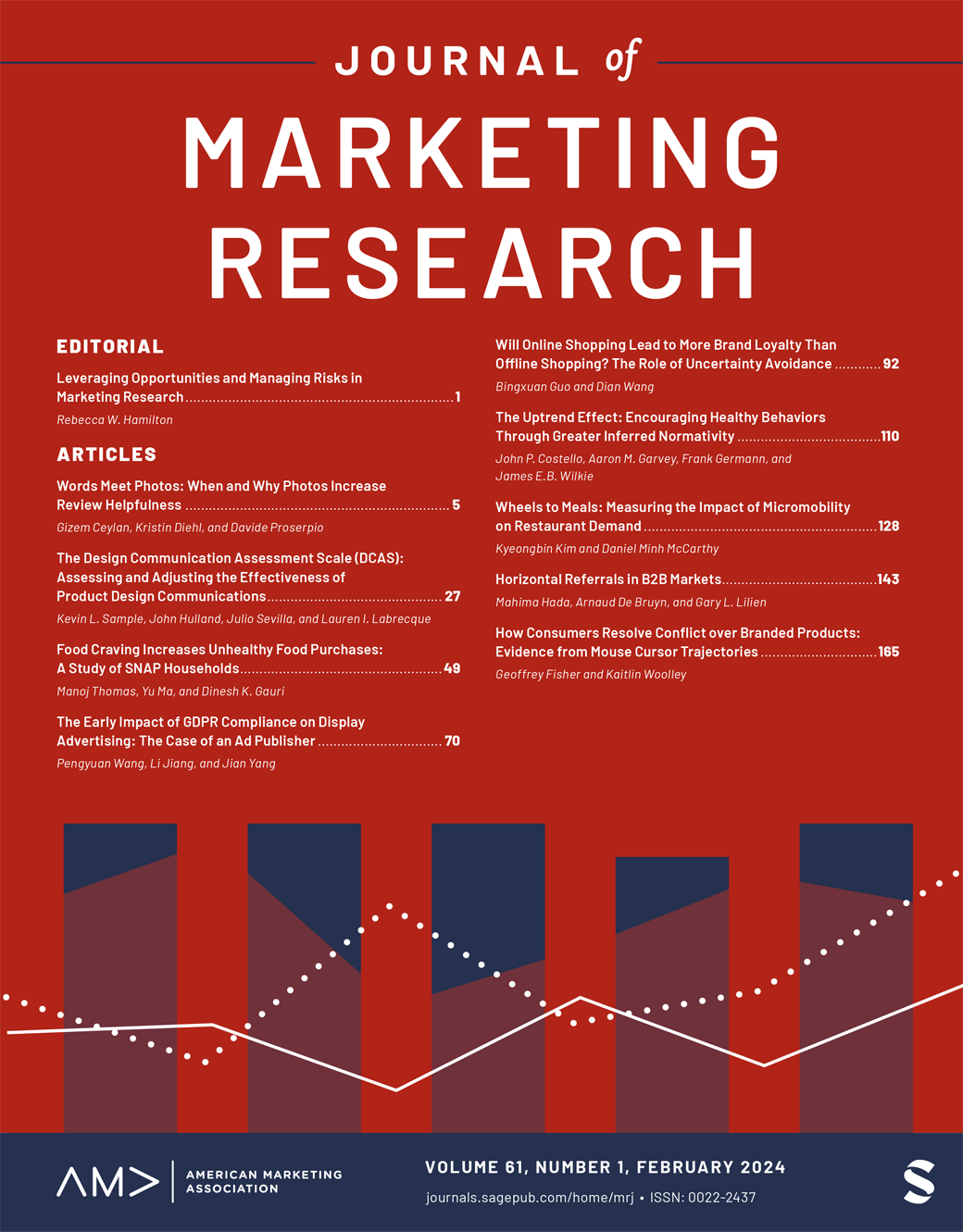Measuring Evidence for Mediation in the Presence of Measurement Error
IF 5
1区 管理学
Q1 BUSINESS
引用次数: 3
Abstract
Mediation analysis empirically investigates the process underlying the effect of an experimental manipulation on a dependent variable of interest. In the simplest mediation setting, the experimental treatment can affect the dependent variable through the mediator (indirect effect) and/or directly (direct effect). However, what appears to be an indirect effect in standard mediation analysis may reflect a data-generating process without mediation, including the possibility of a reversed causal ordering of measured variables, regardless of the statistical properties of the estimate. To overcome this indeterminacy where possible, the authors develop the insight that a statistically reliable total effect, combined with strong evidence for conditional independence of the treatment and the outcome given the mediator, is unequivocal evidence for mediation as the underlying causal model into an operational procedure. This is particularly helpful when theory is insufficient to definitely causally order measured variables, or when the dependent variable is measured before what is believed to be the mediator. The procedure combines Bayes factors as principled measures of the degree of support for conditional independence, with latent variable modeling to account for measurement error and discretization in a fully Bayesian framework. The authors reanalyze a set of published mediation studies to illustrate how their approach facilitates stronger conclusions.存在测量误差的中介测量证据
中介分析实证地调查了实验操作对感兴趣的因变量的影响的过程。在最简单的中介设置中,实验处理可以通过中介(间接效应)和/或直接(直接效应)影响因变量。然而,在标准中介分析中似乎是间接影响的可能反映了没有中介的数据生成过程,包括测量变量的反向因果顺序的可能性,而不管估计的统计性质如何。为了在可能的情况下克服这种不确定性,作者提出了一种见解,即统计上可靠的总效应,结合治疗条件独立的有力证据和给出中介的结果,是将中介作为潜在因果模型纳入操作程序的明确证据。当理论不足以确定测量变量的因果顺序时,或者当因变量在被认为是中介变量之前被测量时,这尤其有用。该程序将贝叶斯因素作为条件独立性支持程度的原则度量,并使用潜在变量建模来解释完全贝叶斯框架中的测量误差和离散化。作者重新分析了一组已发表的调解研究,以说明他们的方法如何促进更有力的结论。
本文章由计算机程序翻译,如有差异,请以英文原文为准。
求助全文
约1分钟内获得全文
求助全文
来源期刊

Journal of Marketing Research
BUSINESS-
CiteScore
10.30
自引率
6.60%
发文量
79
期刊介绍:
JMR is written for those academics and practitioners of marketing research who need to be in the forefront of the profession and in possession of the industry"s cutting-edge information. JMR publishes articles representing the entire spectrum of research in marketing. The editorial content is peer-reviewed by an expert panel of leading academics. Articles address the concepts, methods, and applications of marketing research that present new techniques for solving marketing problems; contribute to marketing knowledge based on the use of experimental, descriptive, or analytical techniques; and review and comment on the developments and concepts in related fields that have a bearing on the research industry and its practices.
 求助内容:
求助内容: 应助结果提醒方式:
应助结果提醒方式:


